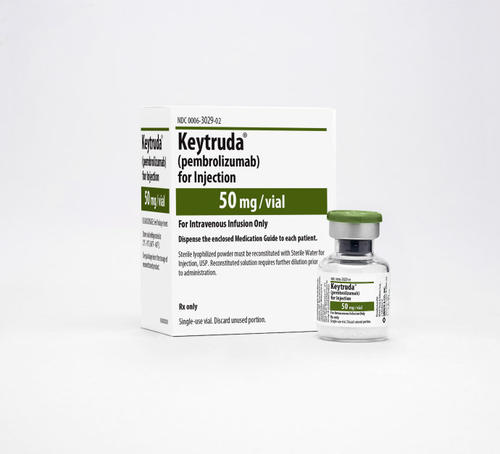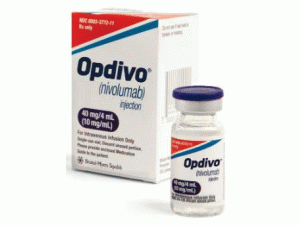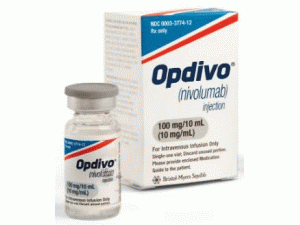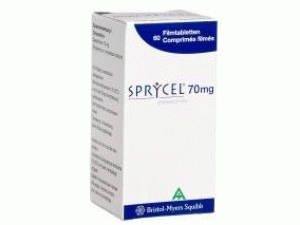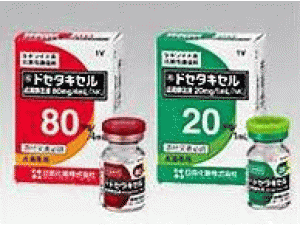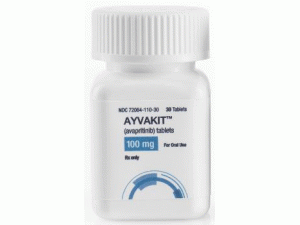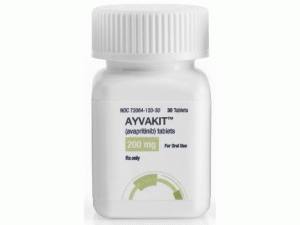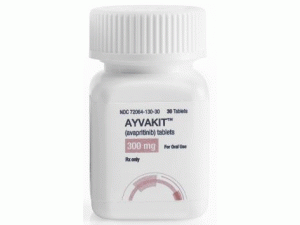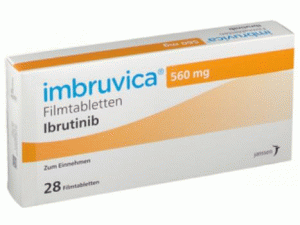替莫唑胺硬胶囊(Temodal hard capsules 20mg)
 产地国家:英国
处方药:是
所属类别: 20毫克/粒 5和20粒/盒
包装规格: 20毫克/粒 5和20粒/盒
计价单位:盒
生产厂家英文名:Merck Sharp & Dohme Limited
原产地英文商品名:Temodal hard capsules 20mg/cap 5-20caps/box
原产地英文药品名:Temozolomide
中文参考商品译名:TEMODAL硬胶囊 20毫克/胶囊 5-20胶囊/盒
中文参考药品译名:替莫唑胺
产地国家:英国
处方药:是
所属类别: 20毫克/粒 5和20粒/盒
包装规格: 20毫克/粒 5和20粒/盒
计价单位:盒
生产厂家英文名:Merck Sharp & Dohme Limited
原产地英文商品名:Temodal hard capsules 20mg/cap 5-20caps/box
原产地英文药品名:Temozolomide
中文参考商品译名:TEMODAL硬胶囊 20毫克/胶囊 5-20胶囊/盒
中文参考药品译名:替莫唑胺
简介
Temodal(temozolomide)是一种新型的脑癌,脑胶质瘤的治疗新型药物,起效快,生存期长,有效降低复发率。替莫唑胺胶囊(temozolomide)是一种新型的口服二代烷化剂-咪唑四嗪类衍生物,口服后迅速吸收具有近100%的生物利用度及广谱的抗肿瘤活性。蒂清进入体内不经肝脏代谢广泛分布于全身,并可透过血脑屏障,进入脑脊液;在中枢神经系统达到有效的药物浓度。 欧盟批准替莫唑胺(Temodal)用于新诊断的多形性恶性胶质癌症和肿瘤2005年6月10日,欧盟委员会批准扩大替莫唑胺(Temodal)的适应证,允许其与放疗同步在新诊断的多形性恶性胶质癌症和肿瘤(GBM)患者中使用,随后再进行6周期的单药治疗。除欧盟现有的25个成员国外,该批准在冰岛和挪威同样有效。欧盟批准其新适应证的依据是一项新发表的有573例新诊断GBM 患者参加的III期临床试验的结果。 该研究由欧洲癌症和肿瘤研究与治疗组织(EORTC)和加拿大国家癌症和肿瘤研究所临床研究组(NCIC CTG)共同完成。研究显示,与单独放疗相比,在放疗的基础上增加替莫唑胺可使两年生存率提高1倍以上(26% vs 10%),并可显著提高中位生存期(14.6 vs 12.1个月)。 副作用:替莫唑胺治疗普遍耐受良好,副反应发生率≥10%,主要包括:食欲下降、头痛、便秘、恶心、呕吐、脱发、皮疹、抽搐、疲乏、腹泻、口腔炎和视力模糊。在与其他细胞毒药物合用时,还会出现中性粒细胞减少、血小板减少的剂量限制性毒性(3/4级中性粒细胞减少8%,3/4级血小板减少14%)。 适应症:替莫唑胺已于2005年3月被美国FDA批准与放疗同步用于治疗成人新诊断的GBM患者,并用于后续维持治疗。该药先前已被欧盟委员会批准在恶性胶质癌症和肿瘤(包括GBM)成人患者标准治疗后复发或进展时使用。同时它也被FDA批准在亚硝基脲和甲基苄肼治疗后疾病进展的抵抗性多形性胶质细胞癌症和肿瘤成人患者。 用法用量:新诊断的多形性胶质母细胞瘤的成人患者:同步放化疗期口服本品,75 mg/m2/日,共42天,同时接受放疗。随后接受6个周期的本品辅助治疗。根据患者耐受程度可暂停用药,但无需降低剂量。辅助治疗期同步放化疗期结束后4周,进行6个周期的本品单药辅助治疗。 起始剂量 :150 mg/m2/日,共5天,然后停药23天。一周期为28天。从第2周期开始,根据前1周期不良反应,剂量可增至200 mg/m2/日,或减至100 mg/m2。常规治疗后复发或进展的多形性胶质母细胞瘤或间变性星形细胞瘤患者:成人患者以前曾接受过化疗者的起始剂量是150 mg/m2/日,共5天。 成人没有接受过其他化疗者的起始剂量为200 mg/m2/日,均连用5天,28天为一个周期。治疗可继续到病变出现进展,最多为2年。儿童患者在以前接受过化疗3岁或以上的患儿,每28天周期中本品口服起始剂量是 150 mg/m2/日,共5天。如果没有出现毒性,下个周期的剂量增至200 mg/m2/日.治疗可继续到病变出现进展,最多为2年。全部患者应空腹(进餐前至少一小时)服用本品。服用本品前后可使用止吐药。如果服药后出现呕吐,当天不能服用第2剂。不能打开或咀嚼本品,应用一杯水整粒吞服。如果胶囊有破损,应避免皮肤或粘膜与胶囊内粉状内容物接触。英文版说明书
TEMODAL 5 mg/20mg/100mg/140mg/180mg/250mg CapsulesTemozolomide (Temodal)This page tells you about a chemotherapy drug called temozolomide and its possible side effects. There is information aboutWhat temozolomide isTemozolomide is a chemotherapy drug used to treat certain types of brain tumours called glioblastoma multiforme or anaplastic astrocytoma.For newly diagnosed glioblastoma multiforme temozolomide is first used together with radiotherapy and then as a treatment on its own.It is used as a treatment on its own for glioblastoma multiforme or anaplastic astrocytoma that has come back or where previous treatment did not work.How temozolomide worksTemozolomide is a type of drug known as an alkylating agent and works by stopping cancer cells from making new DNA. DNA stands for DeoxyriboNucleic Acid. It is the genetic material of a cell. If cancer cells can't make DNA, they can’t split into 2 new cells, so the cancer can't grow.How you have temozolomideYou take temozolomide as capsules that you swallow whole with a glass of water. Take them on an empty stomach – for example, 1 hour before or after meals. Store the capsules in a safe place away from children.If you are having temozolomide alongside radiotherapy, you have radiotherapy for 6 to 7 weeks. You take the temozolomide capsules each day during this time. It is best to take them at the same time each day. If you have temozolomide together with radiotherapy you are at higher risk of getting a type of lung infection called pneumocystis carinii pneumonia, so your doctor will prescribe medicines to help protect you against this.After the radiotherapy, or if you have a brain tumour that has come back, you may have temozolomide as a course of cycles of treatment. You take the temozolomide capsules for 5 days every 4 weeks. You may repeat this treatment up to 6 times.It is very important that you take capsules according to the instructions your doctor or pharmacist gave you. You should take the right dose, not more or less. And never stop taking a cancer drug without talking to your specialist first.If you accidentally take more temozolomide capsules than you were told to, contact your doctor, pharmacist or nurse straight away.If you forget to take a dose of temozolomide take the missed dose as soon as possible during the same day. If more than a full day has gone by, check with your doctor. Don't take a double dose to make up for a forgotten dose, unless your doctor tells you to do that.Tests during treatmentYou have blood tests before starting treatment and regularly during your treatment. The tests check your levels of blood cells and other substances in the blood. They also check how well your liver and kidneys are working.About side effectsWe've listed the side effects associated with temozolomide below. You can use the links to find out more about each side effect. Where there is no link, please go to our cancer drug side effects section or use the search box at the top of the page.You may have a few side effects. They may be mild or more severe. A side effect may get better or worse through your course of treatment. Or more side effects may develop as the course goes on. This depends onHow many times you've had the drug beforeYour general healthThe amount of the drug you have (the dose)The side effects may be different if you are having temozolomide with other drugs or alongside radiotherapy.Tell your doctor or nurse straight away if any of the side effects get severe.Common side effectsMore than 10 in every 100 people have one or more of the side effects listed below.Tiredness and weakness (fatigue) during and after treatment – most people find their energy levels are back to normal within 6 months to a yearHair loss – you may have some thinning within a month of starting treatment. Your hair will grow back when the treatment is overFeeling or being sick can start within a couple of hours of having the capsules and may last until the next day – take anti sickness medicines regularly and tell your doctor or nurse if they aren't workingLoss of appetiteAn itchy rash and dry skinHeadachesConstipation – drink plenty of fluids and tell your doctor or nurse if it doesn't get better within a few daysWomen may stop having periods (amenorrhoea) but this may only be temporaryLoss of fertility may happen with this drug – you may not be able to get pregnant or father a child after treatment so talk to your doctor before starting treatment if you plan to have a baby in the future. It may be possible for men to store sperm beforehandOccasional side effectsBetween 1 and 10 in every 100 people have one or more of these.DizzinessAn increased risk of getting an infection from a drop in white blood cells – it is harder to fight infections and you can become very ill. You may have headaches, aching muscles, a cough, a sore throat, pain passing urine, or you may feel cold and shivery. If you have a severe infection this can be life threatening. Contact your treatment centre straight away if you have any of these effects or if your temperature goes above 38°CTiredness and breathlessness due to a drop in red blood cells (anaemia) – you may need a blood transfusionBruising more easily due to a drop in platelets – you may have nosebleeds, or bleeding gums after brushing your teeth. Or you may have lots of tiny red spots or bruises on your arms or legs (known as petechiae)Taste changesAnxietyDifficulty sleepingLiver changes – you will have regular blood tests to check how well your liver is workingA higher risk of blood clots – let your doctor or nurse know if you have any leg pain, redness or swelling that feels warm to the touchMuscle weakness or back painWeight lossDiarrhoea – drink plenty of fluids and tell your doctor or nurse if it doesn't get better within a few daysTummy (abdominal) pain and an upset stomachHigher levels of sugar in the blood – tell your nurse or doctor if you feel very thirsty and pass a lot of urineConfusion or drowsiness – let your doctor or nurse know if you have thisFeeling sad or depressed – let your doctor or nurse know if you have thisDifficulty speakingDifficulty balancingFits (seizures)Forgetfulness and difficulty concentratingTingling sensations in the skinShaking (tremor)Blurred vision or other eyesight changesLoss of hearingLung changes causing breathlessness or a coughFluid build up causing swollen legs or handsHeartburnDifficulty swallowingA dry mouthSwollen, painful jointsNeeding to pass urine often and discomfort when passing urine – let your nurse or doctor know if you have thisAn allergic reaction – let your nurse or doctor know straight away if you have a sudden skin rash, itching, breathlessness or swelling of the lips, face or throatRare side effectsFewer than 1 in 100 people have these effects.A second cancer or leukaemia some years after treatment.A high temperature (fever) and chills – this does not usually last for longRed spots under the skinWeight gainMood swingsHallucinations (seeing or hearing things that are not there)Dry or sore eyesRinging in the ears (tinnitus)A feeling of your heart beating fast (palpitations)Blood clots in the lung – let your nurse of doctor know straight away if you have a sudden cough, breathlessness or chest painSensitivity of the skin to sunlight – cover up with clothing and use sunscreen if you need to go out into the sunHigher blood pressure – your nurse will check your blood pressure regularlyA blocked nose due to inflamed sinusesDifficulty in controlling bowel movementsDifficulty passing urinePiles (haemorrhoids) – let your doctor or nurse know if you have thisIncreased sweatingChanged sense of smellImportant points to rememberTalk to your doctor, pharmacist or nurse about all your side effects so they can help you manage them. They can give you advice or reassure you. Your nurse will give you a contact number to ring if you have any questions or problems. If in doubt, call them.Other medicinesTell your doctor about any other medicines you are taking, including vitamins, herbal supplements and over the counter remedies. Some drugs can react together.Pregnancy and contraceptionThis drug may harm a baby developing in the womb. It is important not to become pregnant or father a child while you are having treatment and for at least 6 months afterwards. Talk to your doctor or nurse about effective contraception before starting treatment.BreastfeedingDo not breastfeed during this treatment because the drug may come through in the breast milk.Immunisations and chemotherapyYou should not have immunisations with live vaccines while you are having chemotherapy or for at least 6 months afterwards. In the UK, these include rubella, mumps, measles (usually given together as MMR), BCG, yellow fever and Zostavax (shingles vaccine).You can have other vaccines, but they may not give you as much protection as usual until your immune system has fully recovered from your chemotherapy. It is safe to have the flu vaccine.It is safe for you to be in contact with other people who've had live vaccines as injections. There can be problems with vaccines you take by mouth (oral vaccines), but not many people in the UK have these now. So there is usually no problem in being with any baby or child who has recently had any vaccination in the UK. You might need to make sure that you aren't in contact with anyone who has had oral polio, cholera or typhoid vaccination recently, particularly if you用药温馨提示:当您服用此药物时,需定期接受医疗专业人士的检查,以便随时针对其药效、副作用等情况进行监测。本网站所包含的信息旨在为患者提供帮助,不能代替医学建议和治疗。
药品价格查询,专业药品查询网站,药品说明书查询,药品比价 » 替莫唑胺硬胶囊(Temodal hard capsules 20mg)
药品价格查询,专业药品查询网站,药品说明书查询,药品比价 » 替莫唑胺硬胶囊(Temodal hard capsules 20mg)

